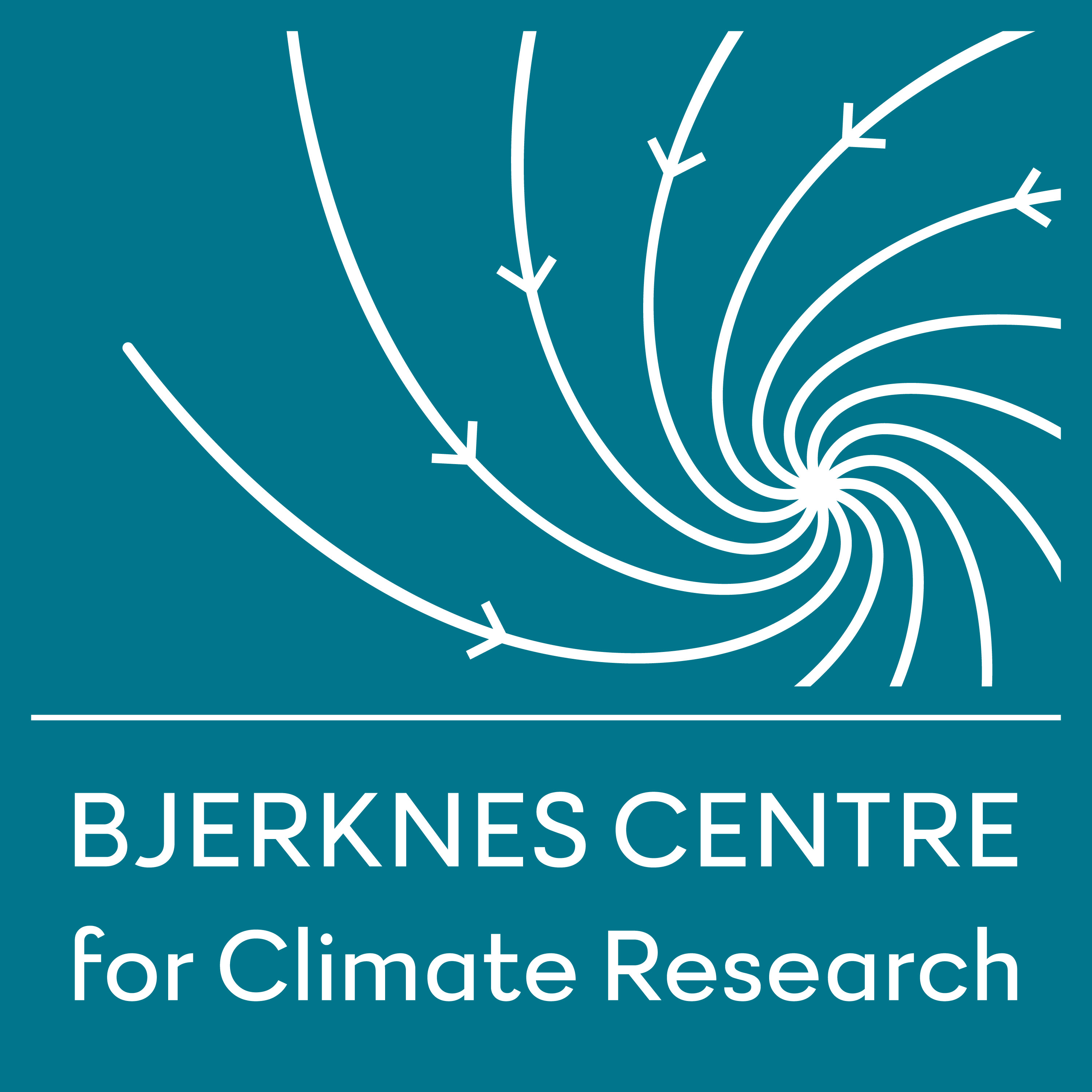
9.2K
Downloads
45
Episodes
Dig into science with climate experts. Interviews and conversations with world-class scientists, hosted by Stephen Outten and Ingjald Pilskog. Stephen Outten is a researcher at Nansen Environmental and Remote Sensing Center and Bjerknes Centre for Climate Research. Ingjald Pilskog is an associated professor at Western Norway University of Applied Sciences and connected to the Bjerknes Centre for Climate Research.
Episodes
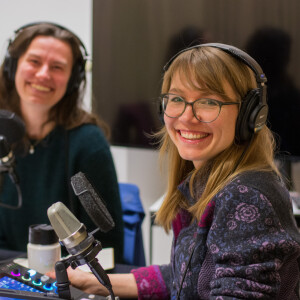
Wednesday May 14, 2025
Norwegian fjords in a changing climate
Wednesday May 14, 2025
Wednesday May 14, 2025
Norway has more than 1700 named fjords, attracting tourists from all over the world. But what is a fjord? What goes on under the surface? In this episode of the Bjerknes Centre's podcast, Natalya Gallo discusses fjords in a changing environment with fellow researchers Elin Darelius, Agnes Weiner and Martine Røysted Solås.
How do changes in the water influence fish and other creatures? What can the past tell us about the years to come? Can the future of the fjords be predicted?
Natalya Gallo is a biological oceanographer and a researcher at NORCE and the Bjerknes Centre.
Elin Darelius is a physical oceanographer and a professor at the Geophysical Institute at the University of Bergen, and the Bjerknes Centre.
Agnes Weiner is a paleoclimatologist and a researcher at NORCE and the Bjerknes Centre.
Martine Røysted Solås is a marine biologist and researcher at the Department of Biological Sciences at the University of Bergen, and the Bjerknes Centre.
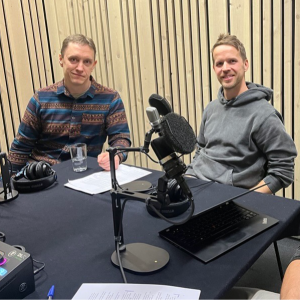
Monday Dec 02, 2024
Is the AMOC Going to Collapse?
Monday Dec 02, 2024
Monday Dec 02, 2024
In the latest episode of the Bjerknes Podcast, experts debate the future of the Atlantic Meridional Overturning Circulation (AMOC), a crucial component of the global climate system. Listen to colleagues discussing the AMOC in a measured and thoughtful manner.
There is an ongoing debate among scientists regarding the potential collapse or slowdown of the AMOC. Both scientific support and contrasting views can be found among colleagues at the Bjerknes Centre for Climate Research. In this new episode of the Bjerknes Climate Podcast, host Stephen Outten discusses these two viewpoints with Andreas Born and Marius Årthun.
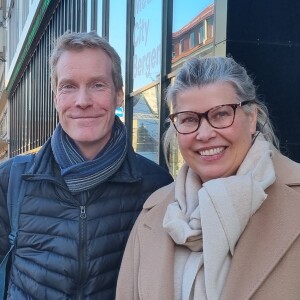
Wednesday May 22, 2024
Klimahistorie
Wednesday May 22, 2024
Wednesday May 22, 2024
Eivind Heldaas Seland og Kikki Kleiven har skrevet bok om klimahistorie. Her forteller de om middelalderens varmeperiode, om temperaturfallet under den lille istiden og om hvordan klimakriser har skapt både stagnasjon og nye idéer.
Eivind Heldaas Seland er professor i historie ved Universitetet i Bergen.
Kikki Kleiven er direktør ved Bjerknessenteret for klimaforskning og førsteamanuensis ved Universitetet i Bergen.
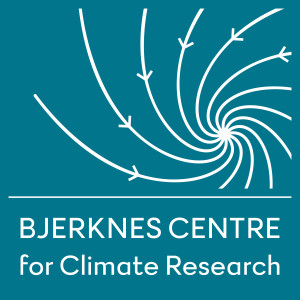
Wednesday Dec 27, 2023
Meike Becker og Ingunn Skjevlan - Deepwater acidification
Wednesday Dec 27, 2023
Wednesday Dec 27, 2023
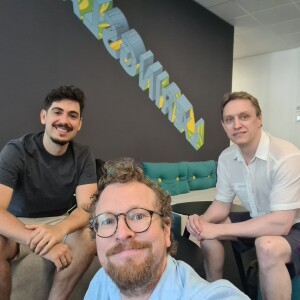
Friday Jun 30, 2023
Predicting algae blooms - a new tool in our arsenal
Friday Jun 30, 2023
Friday Jun 30, 2023
Phd-student Edson Silva at the Nansen Environmental and Remote Sensing Center is talking with our host Stephen Outten, Senior researcher at the Nansen center, about one of the newest tools in our predicting arsenal, an algae bloom predictor. Trained on the coast of north Norway, it can be a great support for managing our costs, but it can be retrained for usage anywhere.
Support and editing by Ingjald Pilskog, associate professor at Western Norway University of Applied Sciences.
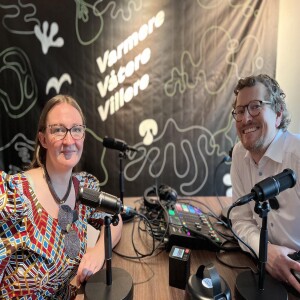
Friday May 12, 2023
Not so green transition
Friday May 12, 2023
Friday May 12, 2023
In Bergen mid-March, the climate festival Varmere, våtere, villere (Warmer, wetter, wilder) filled three floors in Bergen over three days, for talks and debates on climate change and necessary solutions.
Devyn Remme, PhD Candidate, at the Center for Climate and Energy Transition (CET), University of Bergen, works in research of the social and environmental consequences of the transition to electric cars from a global perspective.
At the festival she was in the "Around the World with Climate Science" to talk about her research and experience as a climate researcher. She joins host Ingjald Pilskot in the festival podcast booth.
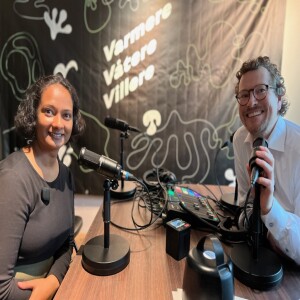
Friday Apr 28, 2023
Pacific islands in a rising ocean
Friday Apr 28, 2023
Friday Apr 28, 2023
In Bergen mid-March, the climate festival Varmere, våtere, villere (Warmer, wetter, wilder) filled three floors in Bergen over three days, for talks and debates on climate change and necessary solutions.
Vandhna Kumar, postdoctoral fellow at the Geophysical Institute (GFI) and the Bjerknes Centre for Climate research, is from Fiji, and works in the OceanStates project at the University of Bergen.
At the festival she was in the "Around the World with Climate Science" to talk about her experiences from climate change in Fiji, and motivated her to become a climate scientist. She joins host Ingjald Pilskot in the festival podcast booth.
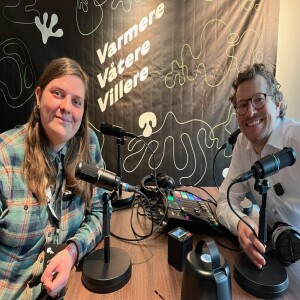
Friday Mar 31, 2023
The Breathing Ocean
Friday Mar 31, 2023
Friday Mar 31, 2023
Oxygen is important for the living creatures in the deep ocean. When global oceans warm, some processes lead to less oxygen in the deep. This somewhat scary trend is what Rachael Sanders investigate in her work in the project O2Ocean.
In Bergen, mid-March, the climate festival Varmere, våtere, villere (Warmer, wetter, wilder) filled a 3-floored house in Bergen over three days, for talks and debates on climate change and necessary solutions.
Rachael Sanders, postdoctoral fellow at NORCE and the Bjerknes Centre for Climate Research was at stage with a talk on the breathing ocean and the oxygen situation in the world oceans today.
As the global oceans warms, there are processes driving change in the ocean interior. As we know warmer water can hold less gas, the ocean takes up less oxygen from the surface. We also know, that the oceans warms, it get more stratified, and not so much waters – with fresh oxygen is transported into the deep ocean.
– In this project, I look at trends within climate change. This is very interesting, but also scary, Sanders admits in the podcast.
Listen to an interesting conversation with podcast host Ingjald Pilskog, on chemical oceanography from the Southern ocean surrounding the Antarctica, to the North Atlantic in a specific cold anomaly episode in 2015.
And finally, please remember that the Bjerknes Climate Podcast is a scienctist-to-scientist talk – so be prepared for some specialized knowledge!
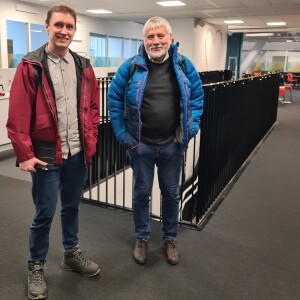
Friday Dec 16, 2022
We are very fond of mud! - paleoclimate with Eystein Jansen
Friday Dec 16, 2022
Friday Dec 16, 2022
Professor Eystein Jansen is one of the founders of the Bjerknes centre for climate research. His field, paleoclimate, is vital to understand how earths climate has changed and is still changing. By studying the past, we have been able to do good predictions of how we humans affect the climate we have now, and the future climate.
Our host Stephen Outten is from the Nansen Environmental and Remote Sensing Center and our co-host Ingjald Pilskog is from the Western Norway University of Applied Sciences.
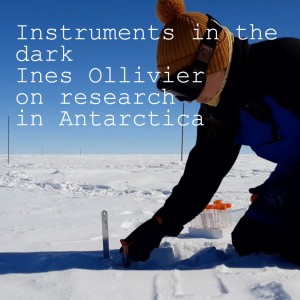
Wednesday Jul 06, 2022
Instruments in the dark – How to understand Antarctica
Wednesday Jul 06, 2022
Wednesday Jul 06, 2022
Inès Ollivier spent a year in Antarctica where she tended instruments that gives us an understanding on how snow accumulates into the massive ice sheet that we know as the Antarctic. Now she is well into her first year as a PhD-student in the EU-funded DEEPICE project. In this project they studies proxies in deep ice cores to understand the past climate dynamics in Antarctica.
Inès Ollivier is a PhD-student at the Geophysical institute, UoB, and a Bjerknes Centre researcher. Learn about her work together with our host Stephen Outten from Nansen Environmental and Remote Sensing Center and co-host Ingjald Pilskog from Western Norway University of Applied Sciences.
